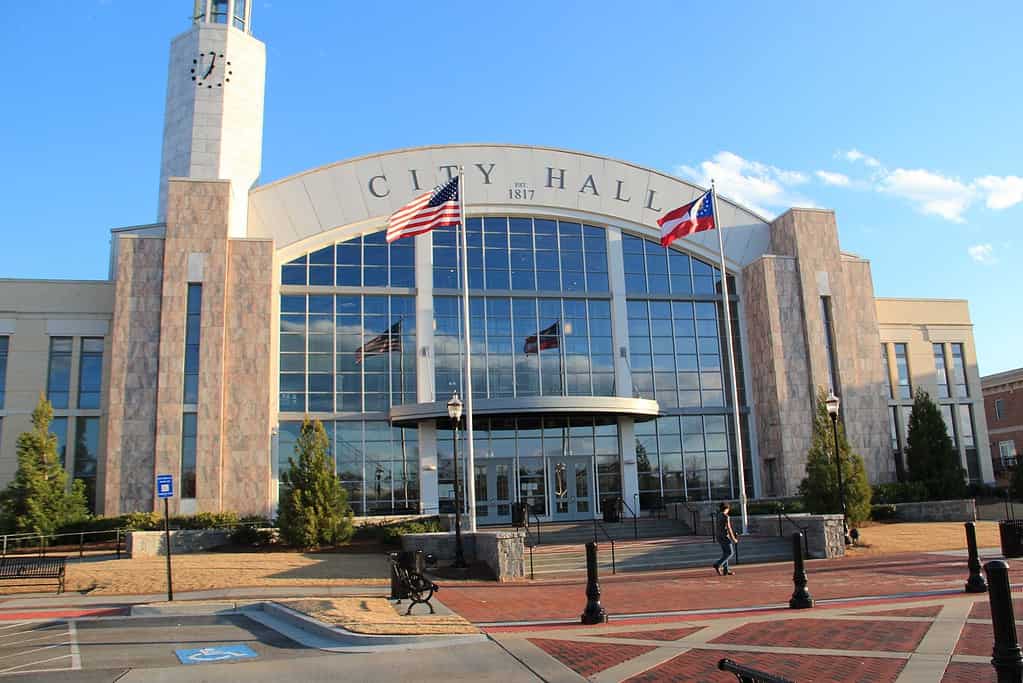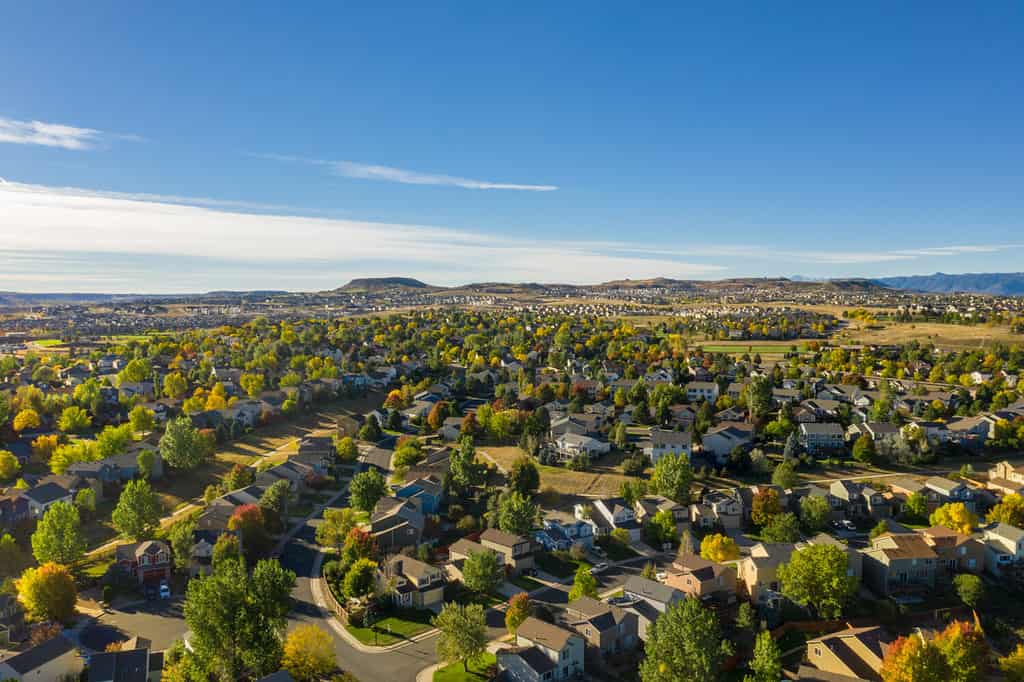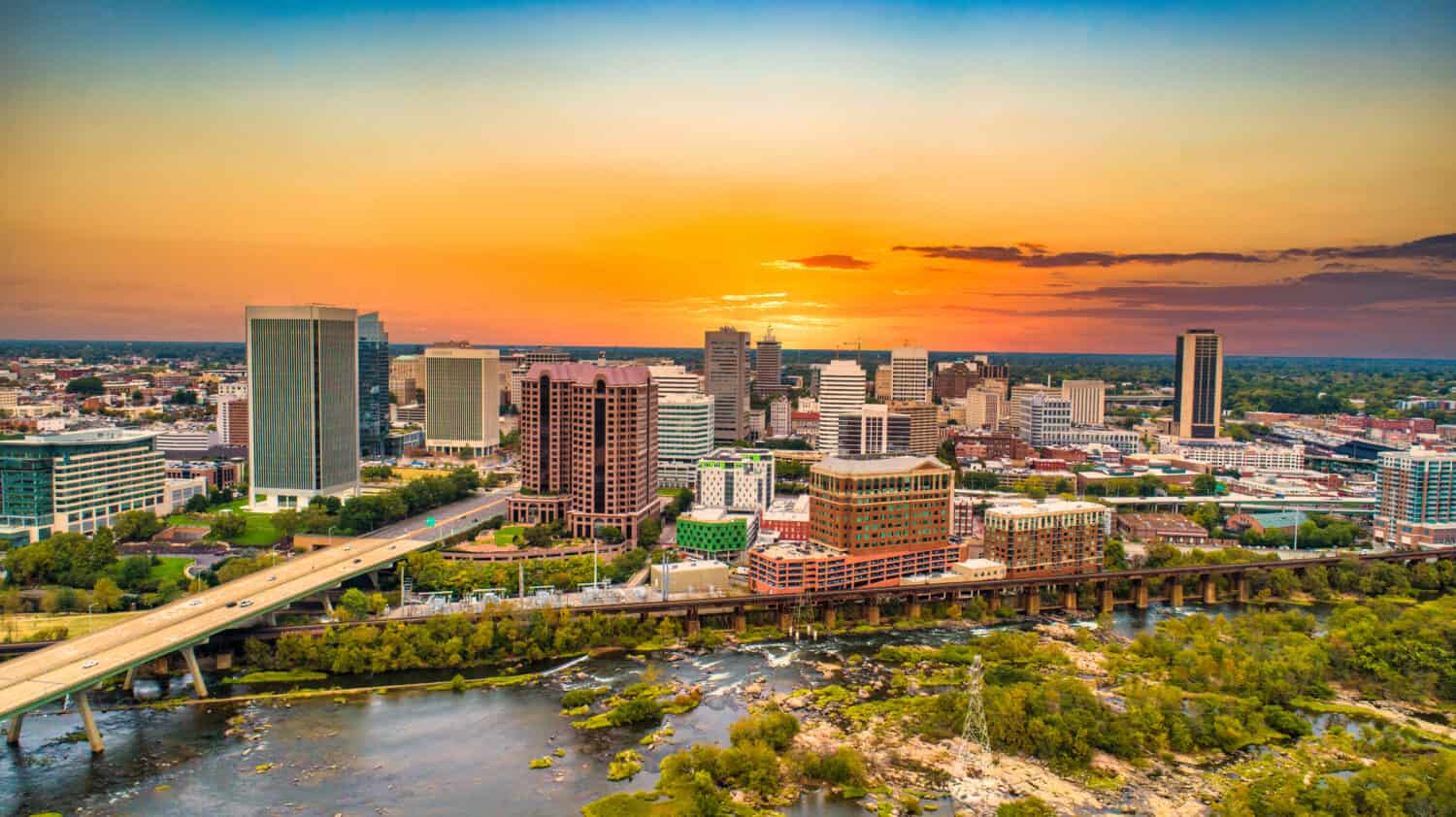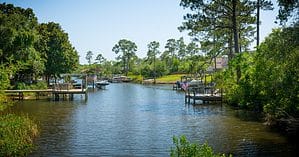When mapping an area comes to fruition, various hierarchies take place. For example, there are states, counties, cities, and unincorporated communities in the United States. There are also towns and villages. In terms of planning, cities are allowed to have the freedom to set their local speed limits, build their parks, and create various other things. But, what about towns? And the real question that we must ask ourselves is what are the key differences between a town and a city? How is each determined? Let’s take a look at the six key differences between a town and a city.
1. Population

A town is generally smaller than a city when it comes to population.
©William Perugini/Shutterstock.com
The main difference between a town and a city is population. Cities are considerably much larger than towns. Every country has its own set of rules in determining what is considered a city and what is considered a town. Usually, that number is arbitrary, for example, 25,000. Historical rights could also be attached to that particular human settlement to make it a town or a city.
2. Demographics

Cities tend to be more diverse than towns, with people of all religions, races, sexual orientations, and cultures living in cities.
©Jun/iStock via Getty Images
One of the differences between a town and a city is demographics. In cities, there is a much larger population, which means that the diversity is abundant. Towns generally tend to be very homogeneous, whereas cities are extremely diverse with many cultures, sexual orientations, religions, and races.
3. Governance

Cities typically are run by a mayor and city council, whereas towns can be run by a board or other entity.
Although this is not the case in many jurisdictions, cities are governed by a mayor and typically a city council. Towns may be governed by a special board or may also be governed by another, bigger governmental agency. This is usually different in every state and country.
4. Economy

Economic opportunity is normally more abundant in a city than in a town.
©Dmitry Demidovich/Shutterstock.com
When we’re talking about cities, population is usually that big factor that sets it apart from towns and villages. With population, comes diversity, but also comes economic opportunity. Because there are more people, there tends to be a flourishing of the economy. Towns are smaller and therefore the economy is much smaller and opportunities for economic success tend to be smaller.
5. Size

A city is usually bigger in geographical size than a town.
©Robert Arthur Designs/Shutterstock.com
Another big difference between cities and towns is size. It’s crystal clear that cities tend to be much bigger and geographically larger than towns. Towns were meant to be small — small in population and small in size. Cities have grown in geographical size because of the population growth they have experienced. Towns usually never experienced that boom and therefore stayed small.
6. Infrastructure

Cities usually have all the human services that people need to live.
©Sean Pavone/iStock via Getty Images
When it comes to infrastructure, there is a clear difference between a town and a city. Cities have everything — hospitals, schools, police stations, health clinics, an abundance of restaurants and bars, libraries, and everything in between. Towns, however, are much smaller, which means that they may not have everything that cities have or they may have a smaller number of human services.
What Is a City?
A city is a form of human settlement that is pronounced by its geographic size, but also by its abundant population. Cities can come in many ways, depending on the country that you are living in. Cities also have transportation systems, abundant housing, hospitals, schools, and everything in between to make them efficient for humans to live in.
What Is a Town?
A town is a form of human settlement that is usually determined by its geographic size, but also its population. Towns are generally smaller than cities, and they are notable for being larger than villages. It is important to note that they are larger than villages in population, but sometimes not in size. Of course, the definition of a town is different depending on where you live. Some jurisdictions have no difference between a city and a town, and others do. Towns are also in a colloquial way, not as efficient as cities, in that they do not have the services needed for humans to live in efficiently.
Conclusion
And there you have it, those are the key differences between a town and a city. Although there is no set way in how each is determined, the usual consensus is that a town is smaller in size and population than a city. But again, the number can be arbitrary, depending on the country that you are living in. In the United States, there truly is no difference between a town and a city when it comes to governmental identification. Many states have different meanings for these two terms. At the end of the day, humans create the colloquial definitions of town and city.
Thank you for reading! Have some feedback for us? Contact the AZ Animals editorial team.








